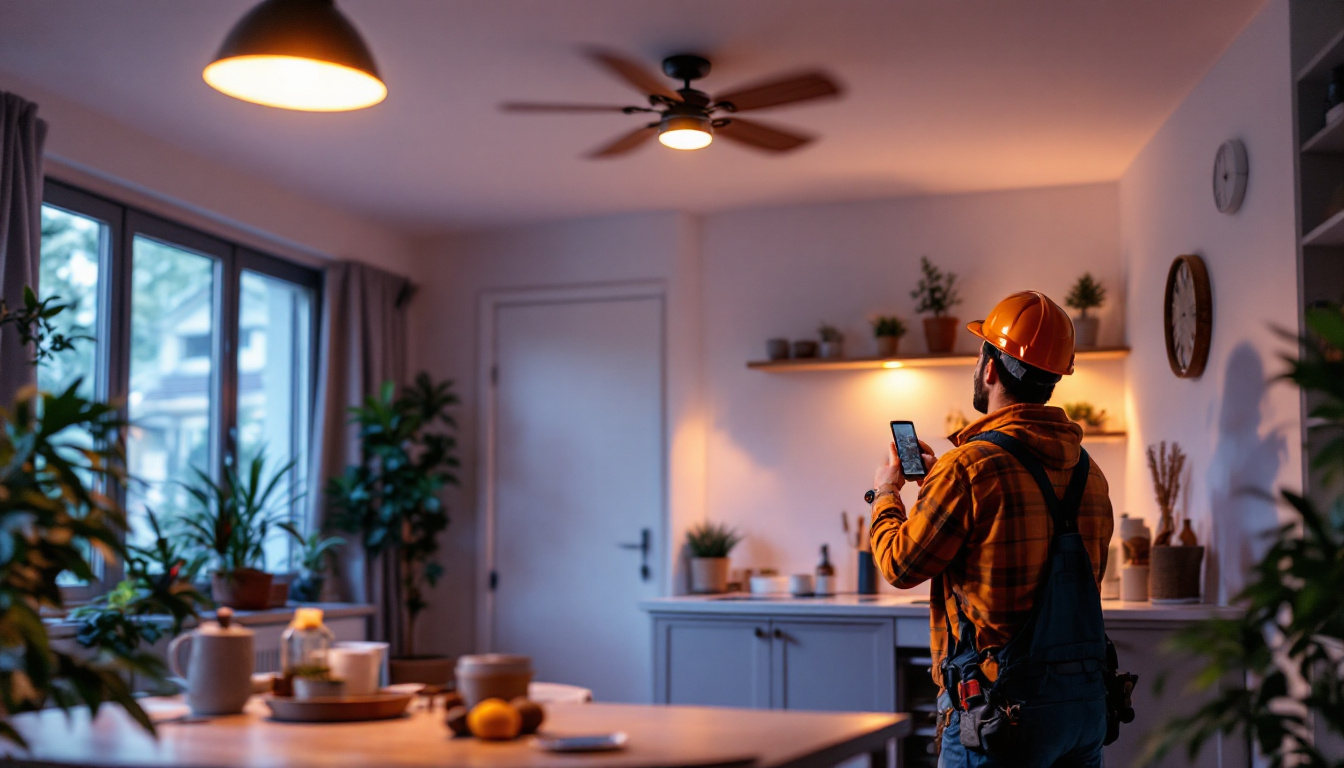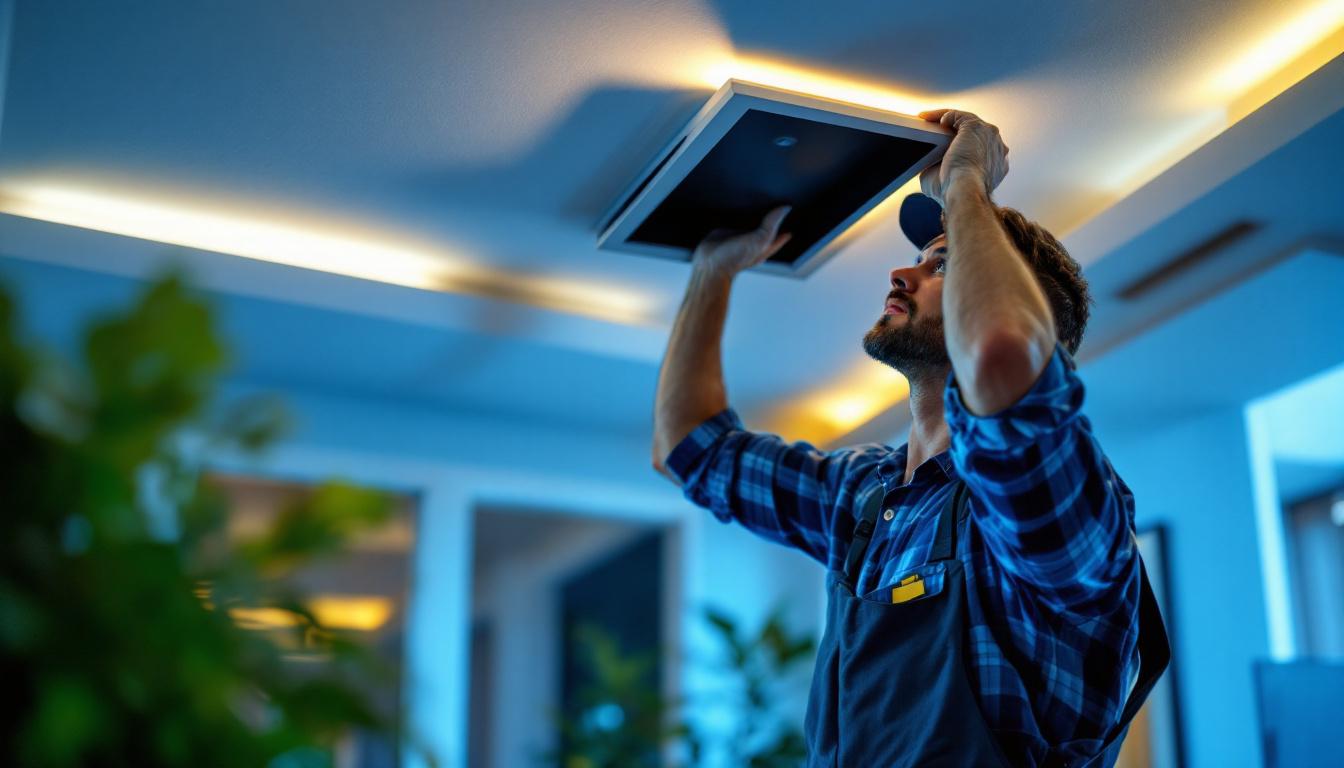
As the demand for sustainable solutions continues to rise, solar lighting has emerged as a viable option for indoor applications. This innovative approach not only promotes energy efficiency but also offers significant cost savings for lighting contractors. Understanding the benefits and implementation of solar lighting can empower contractors to enhance their service offerings while reducing operational expenses.
solar lighting systems harness energy from the sun, converting it into electricity through photovoltaic cells. This technology has evolved significantly, making it suitable for various indoor applications. By utilizing solar panels, battery storage, and energy-efficient LED fixtures, contractors can create effective lighting solutions that require minimal grid reliance.
A typical solar lighting system comprises several key components: solar panels, batteries, charge controllers, and LED fixtures. Solar panels capture sunlight and convert it into electrical energy. The energy is then stored in batteries, which provide power to the LED fixtures when sunlight is not available. Charge controllers regulate the flow of energy, ensuring the batteries are not overcharged or discharged.
LED fixtures are integral to the system as they consume significantly less energy compared to traditional lighting options. This combination of components allows for efficient energy use, making solar lighting a cost-effective alternative for indoor applications. Additionally, advancements in solar technology have led to the development of smart solar lighting systems that can be controlled remotely or programmed to adjust brightness based on occupancy or time of day, further enhancing their functionality and energy efficiency.
Integrating solar lighting into indoor spaces offers numerous advantages. Firstly, it reduces reliance on conventional electricity sources, leading to lower energy bills. This is particularly beneficial for contractors working in commercial or residential projects where lighting costs can be substantial.
Moreover, solar lighting systems are often easier to install than traditional electrical systems, reducing labor costs and installation time. With no need for extensive wiring or electrical permits, contractors can streamline their processes and increase project efficiency. Furthermore, solar lighting contributes to sustainability efforts by minimizing carbon footprints, making it an attractive option for environmentally conscious clients. The ability to utilize renewable energy sources aligns with global initiatives aimed at reducing greenhouse gas emissions, thus promoting a greener future.
In addition to environmental benefits, solar lighting systems can enhance the aesthetic appeal of indoor spaces. With a variety of designs and styles available, contractors can choose fixtures that complement the interior decor while providing effective illumination. This versatility allows for creative lighting solutions that can transform a space, making it more inviting and functional. Whether it’s for a cozy home environment or a modern office setting, solar lighting can adapt to diverse design needs while maintaining energy efficiency.
For lighting contractors, the financial implications of switching to solar lighting can be significant. By offering solar solutions, contractors can attract a broader client base interested in sustainable practices and cost-effective solutions. Additionally, the initial investment in solar technology can be offset by the long-term savings on energy costs.
One of the most compelling reasons for contractors to adopt solar lighting is the potential for reduced energy costs. By utilizing solar energy, contractors can significantly decrease the amount of electricity consumed from the grid. This reduction translates into lower utility bills, allowing contractors to pass savings onto their clients and enhance their competitive edge in the market.
Furthermore, many regions offer incentives for solar installations, such as tax credits or rebates, which can further reduce the overall cost of solar lighting systems. Contractors can leverage these incentives to make solar solutions more appealing to clients, ultimately driving sales and increasing profitability. Additionally, as the demand for renewable energy sources continues to rise, contractors who invest in solar technology now may find themselves ahead of the curve, positioning their businesses as leaders in the green energy movement.
Another cost-saving aspect of solar lighting is its low maintenance requirements. Traditional lighting systems often require regular bulb replacements and maintenance checks, which can add to operational costs. In contrast, LED fixtures used in solar lighting systems have a longer lifespan and require minimal upkeep.
With fewer components prone to failure and lower maintenance needs, contractors can save time and money. This efficiency allows them to focus on acquiring new projects rather than spending resources on ongoing maintenance for existing installations. Moreover, the durability of solar lighting systems means they can withstand various environmental conditions, reducing the likelihood of damage and the associated costs of repairs. This reliability not only enhances the contractor’s reputation but also fosters trust with clients, who appreciate the long-term benefits and sustainability of their investment.
To effectively integrate solar lighting into their offerings, contractors must develop a strategic approach. This involves understanding client needs, evaluating site conditions, and ensuring proper installation practices. By following these strategies, contractors can maximize the benefits of solar lighting systems.
Before proposing solar lighting solutions, contractors should assess the specific needs of their clients. This involves understanding the intended use of the space, the desired lighting levels, and any aesthetic considerations. By conducting a thorough assessment, contractors can recommend tailored solutions that meet client expectations while highlighting the benefits of solar technology.
Engaging clients in discussions about sustainability and energy efficiency can also enhance their interest in solar lighting. Providing case studies or examples of successful installations can further illustrate the advantages and potential cost savings associated with solar solutions. For instance, showcasing a project where solar lighting significantly reduced energy bills or improved safety in a public park can resonate with clients who prioritize both functionality and environmental responsibility. Additionally, offering a range of design options can help clients visualize how solar lighting can complement their existing landscape or architectural features.
Successful solar lighting installations depend on site conditions, including available sunlight, roof orientation, and space for solar panels. Contractors should evaluate these factors to determine the feasibility of solar lighting in a given location. Conducting a site survey can help identify optimal panel placement, ensuring maximum energy capture.
Additionally, understanding local regulations and permitting requirements is crucial. Contractors should familiarize themselves with any restrictions or guidelines related to solar installations to avoid potential setbacks during the project. This may include zoning laws, historical preservation guidelines, or homeowner association rules that could impact the installation process. Furthermore, assessing potential obstructions such as trees or buildings that could cast shadows on solar panels is essential for ensuring the longevity and efficiency of the lighting system. By taking these factors into account, contractors can provide clients with a comprehensive plan that not only meets their lighting needs but also adheres to all necessary regulations and best practices.
While the benefits of solar lighting are substantial, contractors must also be aware of the challenges associated with its implementation. Addressing these challenges proactively can help ensure successful installations and satisfied clients.
One of the primary barriers to adopting solar lighting is the initial investment required for equipment and installation. Although prices have decreased in recent years, the upfront costs can still be a concern for some clients. Contractors should be prepared to discuss financing options, including leasing or power purchase agreements, that can make solar lighting more accessible.
Educating clients about the long-term savings and potential return on investment can also help alleviate concerns about initial costs. By emphasizing the financial benefits over time, contractors can encourage clients to consider solar lighting as a worthwhile investment.
While solar lighting technology has advanced, it is essential to recognize its limitations. Factors such as weather conditions and geographic location can impact the efficiency of solar systems. Contractors should be transparent with clients about these limitations and set realistic expectations regarding performance.
Additionally, staying informed about technological advancements in solar lighting can help contractors provide the best solutions for their clients. Continuous education and training can ensure that contractors remain competitive in the evolving market.
The future of solar lighting appears promising, with ongoing advancements in technology and increasing demand for sustainable solutions. Contractors who stay ahead of these trends can position themselves as leaders in the industry.
As smart technology continues to gain traction, the integration of solar lighting with smart systems is becoming more prevalent. This includes features such as remote control, automated dimming, and energy monitoring. By offering smart solar lighting solutions, contractors can enhance the user experience and provide added value to clients.
Smart technology can also help optimize energy usage, further reducing costs and improving efficiency. Contractors should explore partnerships with technology providers to offer comprehensive smart solar lighting solutions that meet the evolving needs of clients.
As awareness of environmental issues grows, the demand for sustainable solutions is expected to rise. Contractors who prioritize solar lighting can position themselves as environmentally conscious providers, attracting clients who value sustainability. This focus on green solutions can differentiate contractors in a competitive market and contribute to long-term business growth.
Additionally, participating in industry initiatives and certifications related to sustainability can enhance a contractor’s reputation and credibility, further appealing to eco-conscious clients.
Solar lighting presents a unique opportunity for lighting contractors to reduce costs while providing innovative solutions to clients. By understanding the technology, assessing client needs, and addressing challenges, contractors can successfully integrate solar lighting into their offerings. The potential for cost savings, coupled with the increasing demand for sustainable solutions, positions solar lighting as a valuable addition to any contractor’s portfolio.
As the industry continues to evolve, staying informed about trends and advancements will be crucial for contractors looking to lead in the solar lighting space. Embracing this technology not only benefits contractors but also contributes positively to the environment, making it a win-win for all stakeholders involved.
Ready to harness the cost-saving power of solar lighting for your indoor projects? At LumenWholesale, we provide lighting contractors with the highest quality, spec-grade solar lighting products at unbeatable wholesale prices. Say goodbye to local distributor markups and hello to superior lighting solutions that meet the highest industry standards. Plus, with free shipping on bulk orders, you can stock up on premium lighting without any hidden fees. Elevate your lighting game and give your clients the sustainable, energy-efficient solutions they seek. Discover wholesale lighting at the best value today and light up your projects with LumenWholesale.

Discover how industrial dining lights can transform your space with their unique blend of style and functionality.

Discover the ins and outs of dock LED lights with our comprehensive guide tailored for lighting contractors.

Discover how lighting contractors can enhance their projects with recessed light boxes.

Discover how a low brightness light bulb enhances safety in lighting installations, reduces glare, and improves energy efficiency—learn key benefits and safety tips today!.